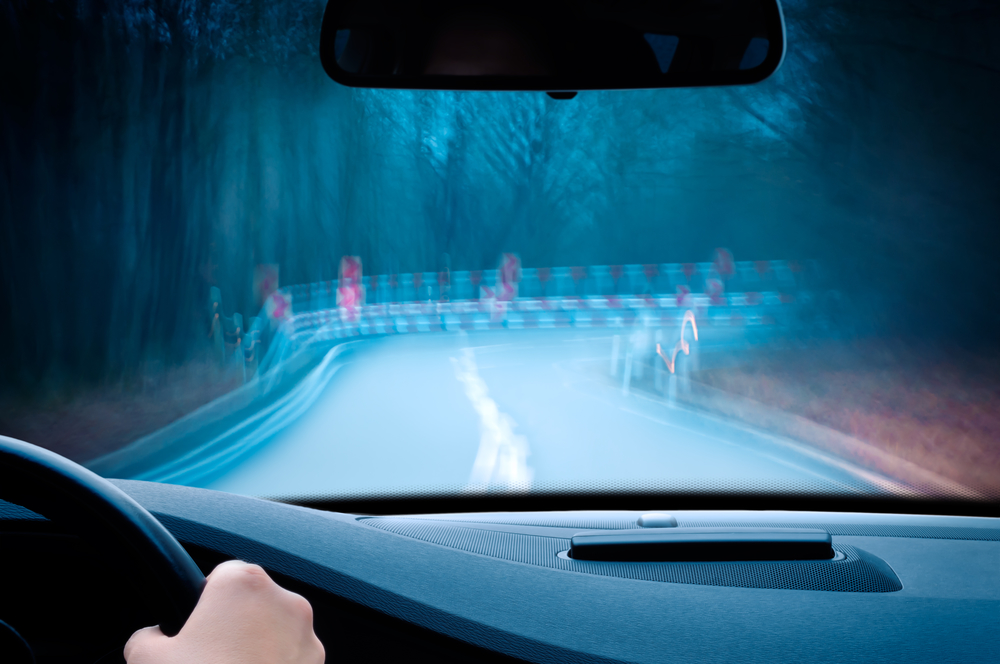Night Vision and Driving

Night Vision and Driving
Night vision is the ability to see well in low-light conditions. As we age, we have greater difficulty seeing at night. Did you know that 9 of every 10 decisions you make behind the wheel are based on what you see? A 50-year-old driver may need twice as much light to see as well as a 30-year-old. At age 60 and older, driving can become even more difficult, according to the American Optometric Association. If night driving is challenging, millions of Americans feel the same way.
Many different things may cause trouble in seeing at night. It can be as simple as needing a new eyeglass prescription, lacking vitamins, overexposure to the sun or the presence of cataracts. If you find that you are having trouble seeing at night, contact your eye doctor who can help to rule out diseases that could cause long term loss of vision.
Below are some of the most common causes of night vision loss in adults.
- Cataracts. The eye’s lens is located behind the pupil. As you age cells grow and die inside of the lens. This causes debris to build up and leads to cataracts. Cataracts are not painful, however, they will gradually cloud your lens. One of the first symptoms of cataracts is decreased visibility at night. Blurry vision is also common with cataracts or seeing halos around objects.
- Lack of Vitamin A. Vitamin A is found in many leafy vegetables and also in carrots. It helps to keep the retina healthy. While it is not common for many Americans to lack Vitamin A, diseases such as Crohn’s disease, Celiac disease or gastric bypass may make it difficult for the body to absorb needed vitamins. Not getting enough of needed vitamins can increase the chance of having decreased night visibility.
- Retinitis pigmentosa. This is a rare genetic disorder that mostly affects younger people before they reach the age of 30. A decline in night vision is usually the first symptom but can lead to a total loss of vision.
- Sunlight exposure. Having large amounts of sunlight exposure, after a trip to the local ski resort or laying out on the beach, can burn your eyes. This is known as sun blindness and can last for a few days or longer depending on the amount of exposure and the frequency that you experience this exposure. Wearing sunglasses helps to prevent permanent damage to your eyes from the sun.
- Macular Degeneration. The deterioration of the macula, which is the small central area of the retina of the eye that controls visual acuity.
We can’t change the aging process so what steps can be taken to ensure safe nighttime driving?
- Have an annual vision exam to check for such things as cataracts that can cause nighttime vision loss.
- Check with your doctor about the side effects of prescription drugs
- Reduce speed
- Take a driving course; even experienced drivers can benefit from a refresher course, and some of the rules have probably changed
- Avoid driving on dark rainy nights.
- Keep windshields clean inside and out.
- Avoid looking directly at approaching vehicles at night, even when their lights are dimmed.
Be proactive in taking care of your health and be safe on the road. Be honest with yourself. If a driving situation makes you uncomfortable, don’t do it. Many older drivers voluntarily begin to make changes in their driving practices. If fast-moving traffic bothers you, consider staying off freeways, highways, and find street routes instead. You may also decide to avoid driving in bad weather (rain, thunderstorms, snow, hail, ice). If you are going to a place that is unfamiliar to you, it is a good idea to plan your route before you leave so that you feel more confident and avoid getting lost.
If friends or relatives are concerned about your driving ability – it may be time to take a hard look at your safety and the safety of others.
About Bissell Eye Care: John D. Bissell, OD owns and operates Bissell Eye Care servicing Northern Pittsburgh and Alle-Kiski Valley regions. With two locations to treat patients, we offer evening and Saturday appointments. Bissell Eye Care provides comprehensive eye examinations for the entire family beginning as early as 6 months, ocular disease detection and treatment, eyeglasses, sunglasses, activewear, contact lenses, and low vision examinations for those with significant vision loss. We accept most types of vision and health insurance plans. For more information, visit bisselleyecare.com or call our Bakerstown Office at 724-443-6767 or Natrona Heights office at 724-226-0444.
